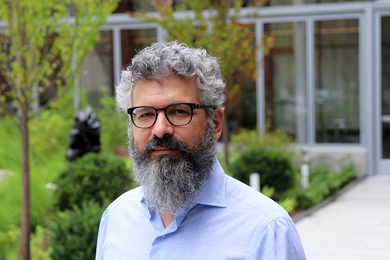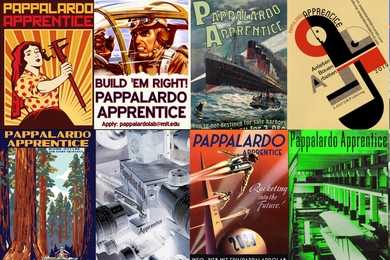This is an adaptation of an article that appeared in the fall 1999 issue of Pr�cis, the newsletter of the Center for International Studies.
All four of MIT's foreign-study programs -- and soon a fifth -- have been united under the umbrella of the MIT International Science and Technology Initiatives program (MISTI).
The consolidation was made possible by a $6 million endowment grant to MISTI from the Starr Foundation. By pooling the resources of the programs under a common administration directed by Professor Suzanne Berger of political science, MISTI will enhance its internship programs, facilitate more cross-border research and regional collaborations, and be primed to expand into new areas.
The Institute's first international internship program was the MIT Japan Program, begun in 1981 by Professor Richard Samuels of political science. In 1994, the Provost's Office established MISTI to help MIT participate in the technological, scientific and economic breakthroughs appearing in industrial countries as well as new economic centers of power.
MISTI's first focus was a China internship program, which has received support from the Freeman Foundation and the National Science Foundation starting this year. The MIT Germany Program soon followed. Both were based on the MIT Japan Program. Two years ago the MIT India Program began, and this fall the MIT Italy Program will be launched (MIT Tech Talk, March 10, 1999).
The programs, open to all students and alumni/ae, create opportunities for understanding technology and management issues in an international context. The interns take courses on the target country and its language at MIT and go through a training program before leaving for up to a year.
Once overseas, they undertake work and research in their field, and finish with advanced knowledge of foreign business practices, language and technology. In 1999, MISTI sent a total of 116 interns to China, India, Japan and Germany.
MISTI also supports research on technology-related topics. Last June, Professor Samuels and Dr. William Keller, executive director of the Center for International Studies, launched a new MISTI project, "Innovation and Crisis: Asian Technology After the Millennium." Plans include a working paper series, an edited volume and an international conference. The study, which is being conducted by 15 researchers, is an analysis of the effects of the financial and political crises on innovation in Asia. In addition, MISTI runs training sessions for corporate sponsors -- such as the annual Executive Seminar, a three-day course on China and Japan -- and produces a video series, working papers and other training materials.
On campus, MISTI sponsors talks, seminars and cultural events. For example, the Germany and Japan programs organize lunch language exchanges, while the Japan and China programs sponsor research talks, and each program helps sponsor films.
A version of this article appeared in the September 15, 1999 issue of MIT Tech Talk (Volume 44, Number 5).





